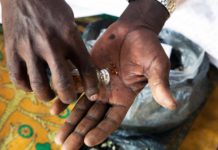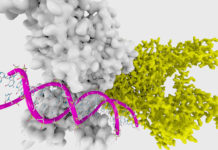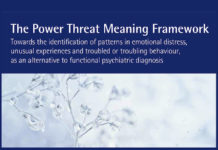Integrating Indigenous Healing Practices and Psychotherapy for Global Mental Health
As the Global Mental Health Movement attempts to address cross-cultural mental health disparities, a new article encourages integrating traditional healing practices with psychotherapy.
Individuals with Psychosis Symptoms More Likely to be Victimized
Individuals diagnosed with a psychotic disorder are 4-6 times more likely than the general population to experience victimization.
Large Study Finds Epigenetic Changes Associated with Trauma Explained by Smoking
A new study suggests that epigenetic changes that have been associated with trauma may actually be due to environmental toxins.
How Relational Therapy Enhances a Sense of Self and Relationships
Relational therapy can be informed by the intersubjective dynamics observed in early childhood to facilitate the development of healthy relational patterns and a strong sense of self.
Study Finds Racial Differences in Psychiatric Diagnosis and Treatment
Black patients are almost twice as likely as their white counterparts to be diagnosed with schizophrenia while whites are significantly more likely to receive a diagnosis of anxiety or depression, according to a recent study published in the journal Psychiatric Services. The researchers also found that the likelihood of receiving psychotherapy for any diagnosis (34%), regardless of race or ethnicity, was much lower than the likelihood of receiving a psychotropic medication (73%).
“Mental Illness Mostly Caused by Life Events Not Genetics, Argue Psychologists”
According to psychologists, “mental illness is largely caused by social crises such as unemployment or childhood abuse.” If this is so, why are we...
Will Psychiatry’s Harmful Treatment of Our Children Bring About Its Eventual Demise?
The safety of our children is a sacred obligation we strive to preserve. Anything or anyone that harms them becomes the object of our...
Western ‘Depression’ is Not Universal
Derek Summerfield, consultant psychiatrist at South London and Maudsley National Health Service Foundation Trust, challenges the assumption that Western depression is a universal condition.
Researchers Develop New Model for Understanding Depression
Acknowledging that current depression treatments are failing many people, researchers from Michigan State and MIT have developed a new model for understanding how multiple psychological, biological, social and environmental factors contribute to depression.
Trauma and Schizophrenia: The Ultimate Political Battle
This weekend I attended an international trauma studies conference in Miami, Florida, where some of the leading researchers and clinicians in the field of trauma gathered to share their innovative projects and findings. Although there were many worthwhile moments, overall I left feeling paradoxically hopeful, saddened, inspired, and a bit dumbfounded. One study after another was presented on "trauma-related disorders" and their associated treatments, yet there was not a single mention of schizophrenia or its related diagnoses. Four days of trauma discussion and the topic of psychosis was nowhere to be found.
New Podcast – is it Really Mental Illness?
From the University of Liverpool News: In a new podcast, Dr. Peter Kinderman, the vice-president of the British Psychological Society, argues that emotional distress is...
Family Oriented, Home-Based Treatment Best for Youth with Symptoms of Psychosis
A pathbreaking new study out of Finland suggests that early intervention programs for youth experiencing psychotic-like symptoms may see the greatest improvement when treatment works within the home rather than in a hospital setting. The research, to be published in next month’s issue of Psychiatry Research, found greater improvement in functioning, depression, and hopelessness among teens in a new need-adapted Family and Community oriented Integrative Treatment Model (FCTM) program.
New Trial Finds Trauma-Focused Therapy Effective in Children
Trauma-focused cognitive behavioral therapy (Tf-CBT) is effective at reducing the symptoms associated with PTSD in children and adolescents, according to a new trial out...
The Power Threat Meaning Framework One Year On
The team that developed the Power Threat Meaning framework as a diagnostic alternative reflects on the response to the framework after one year.
Psychologists Argue for Decolonial Approach to Global Poverty
Individualist psychological models of poverty pathologize poor communities, decolonial approaches that emphasize context and interdependence may be more sustainable.
Psychological Research Fails to Capture Human Diversity, Researchers Call for Action
Data demonstrate an overreliance of non-representative and non-diverse sampling biases in psychological research.
Traumagenic Neurodevelopmental Model of Psychosis — Revisited
The traumagenic neurodevelopment model of psychosis, introduced in 2001, highlighted similarities between brain abnormalities found both in people who have been abused and those...
Researchers Question the “Adequacy and Legitimacy” of ADHD Diagnosis
A new article, just published online in the journal Emotional and Behavioural Difficulties, presents research suggesting that the diagnosis of ADHD is philosophically inadequate.
Dickens’ Christmas Carol: A Psychiatric Primer of Character and Redemption
Scrooge’s character was forged from his own emotional pain. Indeed, we can change the course of our lives through facing and mourning that pain. Want, deprivation and cruelty create the evils of the world. Mourning and trust, in the context of love, are its antidotes.
Increasing Prevalence of Mood Disorders Among Teens and Young Adults
Depression, serious psychological distress, and suicide attempts have risen substantially since the early 2000s among young adults – what’s changed?
Poor and Foster Care Children More Likely to be Diagnosed and Treated with Psychiatric...
Study details Medicaid-insured birth cohort’s exposure to psychiatric medications and mental health services.
Increasing Physical Activity in Schools May Improve Mental Health
A new article suggests integrating physical activity throughout the day may help to address the mental health of students.
Childhood Trauma Linked to Bipolar Diagnosis, Symptoms
Research on a sample of 587 patients with DSM-IV defined bipolar disorder finds that an earlier age at onset of bipolar illness - along...
Hope for Everyone
I am a very optimistic psychologist, but with reason. For 25 years I've been working with people who have had psychological problems in every conceivable area. Many psychologists have problems with burnout, especially early in their careers. For me, this has been very different. By using the treatment techniques that I do, I feel anti-burned out. It is so gratifying to see people get out of their serious problems, that I look forward to every day of clinical work.
Experts Decry Dangerous Use of Antipsychotics in Children
In a featured article for Psychiatric Services, psychiatrists from Dartmouth raise the alarm on the increasing numbers of children prescribed dangerous antipsychotic drugs. Despite the fact that data on the safety of long-term use of these drugs in this vulnerable population “do not exist,” the rate of children and adolescents being prescribed antipsychotic drugs have continued to increase over the past fifteen years.























